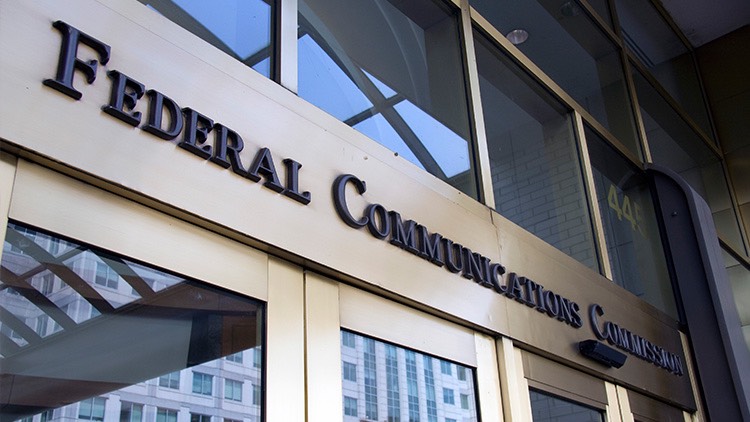FCC Advances $2 Billion CAF II Auction

The smarter way to stay on top of broadcasting and cable industry. Sign up below
You are now subscribed
Your newsletter sign-up was successful
The FCC voted Thursday, though with commissioner Michael O'Rielly approving in part and dissenting in part, to establish rules for handing out $2 billion for rural broadband deployment by competitive carriers, including cable ISPs.
The largest incumbent carriers declined about $2 billion in Connect America Fund phase II (CAF II) support for building out to high-cost, generally rural, areas in 20 states, so the FCC is opening that pot of money up to competitors via auction.
The vote Thursday was an effort to balance deployment while holding down costs.
It does so by giving more weight to bidders offering higher speeds, higher usage allowances and lower latency, regardless of the technology they use but with an eye toward getting to as many consumers within a budget for rural Universal Service Fund support.
The idea, said FCC chairman Ajit Pai, is to incentivize new entrants to bid for the support, including "competitive entrants like wireless internet service providers, small-town cable operators, and electric utilities."
Pai has made closing the digital divide one of his signature issues and said "that’s why we are moving forward today with our own competitive bidding process to bring the highest-quality broadband services at the lowest cost to the taxpayer to those many Americans who’ve been waiting."
The American Cable Association, whose members are among those eligible to compete for those funds in the auction, praised the weighting methodology, which mirrored ACA's proposed approach.
The smarter way to stay on top of broadcasting and cable industry. Sign up below
"ACA believes the FCC took a positive step to bring robust broadband service to unserved areas, using 'universal service' funds more cost effectively. Throughout the process, ACA urged the FCC to adopt a technology and competitively neutral methodology that would maximize participation by providers using any technology and thereby result in the most cost effective distribution of support and the provision of the best broadband possible," said ACA president Matt Polka. "Moreover, ACA, alone among the interested parties, submitted to the FCC detailed analysis about how to construct such a weighting methodology. The FCC appears to have taken ACA's analysis to heart and ACA appreciates that consideration. ACA looks forward to working with the FCC as it continues to develop rules for the CAF reverse auction process."
“While many of us take broadband services for granted, many Americans living in rural communities remain unconnected," said AT&T senior VP of federal regulatory Joan Marsh. "Low population density, topographical barriers, and significant geographical distances make it economically unviable to deploy broadband in many rural areas. Today, the FCC, under Chairman Pai’s leadership, took significant steps toward addressing the digital divide and bringing mobile and fixed broadband services to hard-to-serve rural communities."
But not everyone was rolling out the welcome mat.
That includes Republican Michael O'Rielly, who had strong reservations about various parts of the order, saying it puts unreasonable penalties on latency and taking issue with the various weighting decisions, saying they were rushed and "with little to no factual basis.”
He also said the FCC could wind up spending a disproportionate amount on services it can't afford, echoing his past criticism that the FCC should "buy fewer Lamborghinis and more Chevys."
Alex Phillips, president of the Wireless Internet Service Providers Association (WISPA), agreed that the plan was skewed toward higher-cost options—to the disadvantage of his members—saying it "will tend to favor the costliest technologies (fiber) over the most cost-effective (wireless). This approach will cost the Universal Service Fund more money to serve fewer homes and businesses."
He called it a "squandered opportunity for the American taxpayer and rural Americans. Rather than using the auction to drive competition and spur innovation, the FCC’s plan will disproportionately subsidize a particular access technology that large corporations have tried and abandoned in hard-to-reach areas due to excessive cost, slow deployment, and lack of demand. As a result, too many rural Americans will remain on the wrong side of the digital divide, and those who do get access will have to wait much longer to be connected to ‘Lamborghini’ service.”
Contributing editor John Eggerton has been an editor and/or writer on media regulation, legislation and policy for over four decades, including covering the FCC, FTC, Congress, the major media trade associations, and the federal courts. In addition to Multichannel News and Broadcasting + Cable, his work has appeared in Radio World, TV Technology, TV Fax, This Week in Consumer Electronics, Variety and the Encyclopedia Britannica.

